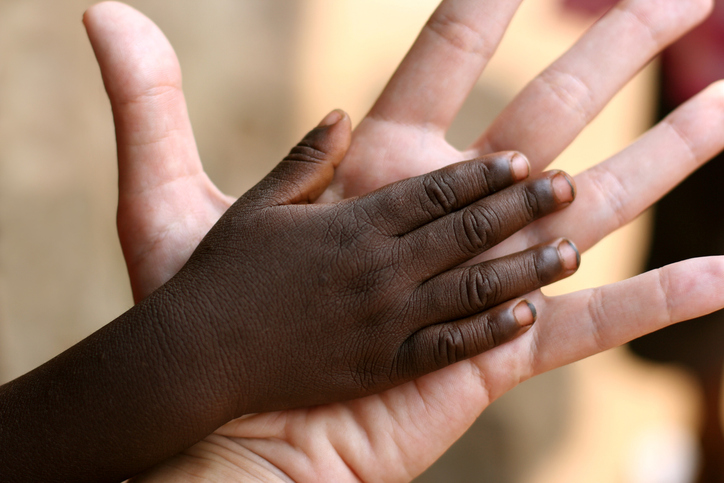What Challenges Face Transracial Adoption and Foster Parenting?
Understanding the complexities of transracial adoption and foster parenting poses challenges in identity, self-esteem, and cultural awareness. Comprehending and respecting differences, fostering a supportive environment, and addressing racial bias are essential. Open discussions about race, heritage, and embracing diversity enhance family dynamics. Confronting discrimination, stereotypes, and seeking support resources are critical. Prioritizing self-care and building a strong support system play key roles. Exploring these aspects can help you navigate the unique challenges and provide valuable insights for fostering a nurturing environment for your child’s development.
Key Takeaways
- Identity struggles due to racial differences.
- Navigating cultural heritage and acceptance.
- Addressing racial bias within family dynamics.
- Confronting discrimination and stereotypes.
- Accessing supportive resources for guidance.
Identity and Self-Esteem

Addressing the challenges of transracial adoption and foster parenting requires a thoughtful examination of how identity and self-esteem are impacted in children. Adoption challenges often intersect with issues of self-acceptance, self-awareness, and racial identity. For children in transracial adoptive or foster families, managing their identity can be intricate. They may struggle with questions about where they belong, which can impact their self-esteem and overall well-being.
It’s essential for caregivers to create a supportive environment that fosters self-acceptance and encourages open discussions about race and identity. Encouraging self-awareness in children from a young age can help them develop a strong sense of self and confidence in their identity. Providing opportunities for children to explore their cultural heritage and learn about their background can contribute positively to their self-esteem.
Caregivers should also be prepared to address any challenges that arise regarding racial identity, offering guidance and support as children handle these complexities. By promoting self-acceptance and nurturing self-awareness, caregivers can help children in transracial adoption and foster care build a strong foundation for a positive self-image and a healthy sense of identity.
Cultural Awareness and Understanding
To better support children in transracial adoption and foster care, it’s important to cultivate cultural awareness and understanding within their environment. Cross-cultural education plays an essential role in helping children navigate their identity and heritage within a diverse society. By promoting racial sensitivity, caregivers can create a nurturing environment where children feel accepted and valued for their unique backgrounds.
Cross-cultural education involves providing resources and opportunities for both children and caregivers to learn about different cultures, traditions, and histories. This knowledge helps foster a sense of belonging and pride in one’s cultural background, enhancing self-esteem and identity development. Encouraging open discussions about race and ethnicity can also help children develop empathy and respect for others.
Racial sensitivity is vital in transracial adoption and foster care as it ensures that children’s cultural needs are met with understanding and respect. By embracing diversity and actively engaging in cultural learning, caregivers can create a supportive environment where children thrive and develop a strong sense of self in their cultural identity.
Navigating Family Dynamics

As you navigate family dynamics in transracial adoption or foster parenting, issues of identity and belonging may arise. Understanding and respecting cultural differences within your family unit is essential for creating a supportive environment.
Embracing these challenges can lead to stronger bonds and a more inclusive family dynamic.
Identity and Belonging
Managing family dynamics in transracial adoption and foster parenting can present unique challenges when it comes to fostering a sense of identity and belonging for the child. Creating a sense of community and acceptance, while also honoring the child’s racial heritage and promoting cultural integration, are vital aspects in ensuring the child’s well-being.
It is essential to provide an environment where the child feels a sense of belonging within their family unit, regardless of racial differences. Encouraging open conversations about race, heritage, and identity can help the child navigate their understanding of who they are and where they fit in.
Acknowledging and celebrating the child’s cultural background, traditions, and customs can aid in fostering a strong sense of identity. Additionally, promoting acceptance and inclusivity within the family dynamic is key to creating a supportive and nurturing environment for the child.
Cultural Differences
Managing cultural differences within family dynamics can be a challenging yet rewarding experience for both the child and the caregivers involved. Language barriers can sometimes hinder effective communication and understanding, making it important to find ways to bridge these gaps. Encouraging the celebration of heritage can help foster a sense of belonging and pride in one’s cultural background, creating a more inclusive and supportive environment for the child.
Food preferences and cultural traditions are also significant aspects to take into account. Embracing the child’s food preferences and incorporating traditional dishes into family meals can be a way to show respect for their heritage and make them feel accepted. Understanding and respecting cultural traditions, such as holidays, ceremonies, and customs, can further strengthen the bond between the child and their new family.
Navigating cultural differences requires patience, openness, and a willingness to learn and adapt. By embracing diversity and actively engaging with the child’s cultural background, both the child and caregivers can cultivate a more enriching and harmonious family dynamic.
Dealing With Racial Bias

Managing the challenges of transracial adoption and foster parenting involves understanding and addressing the presence of racial bias in various aspects of the child’s life. Recognizing and negotiating racial bias is essential for creating a supportive environment for your child.
Community involvement can be a valuable resource in combating racial bias. Engaging with diverse communities and seeking support from cultural organizations can help you and your child feel connected and understood.
Education resources play an important role in addressing racial bias. Utilize books, online materials, and workshops that focus on diversity, inclusion, and racial equality. Educating yourself and your child about different cultures and histories can foster empathy and understanding, helping to counteract stereotypes and prejudices.
Addressing Discrimination and Stereotypes
To effectively address discrimination and stereotypes in transracial adoption and foster parenting, it’s essential to actively confront and challenge biased beliefs and behaviors. Implicit bias, which are unconscious attitudes or stereotypes that affect our understanding, actions, and decisions, can often manifest in the form of microaggressions towards individuals from different racial backgrounds. These subtle, often unintentional actions or comments can be harmful and perpetuate stereotypes, creating a challenging environment for transracial adoptees and foster children.
To combat discrimination and stereotypes, it’s vital to educate oneself on the impact of implicit bias and microaggressions. By raising awareness and fostering open discussions, individuals involved in transracial adoption and foster parenting can work towards creating a more inclusive and supportive environment for children of diverse backgrounds.
It’s important to actively listen to the experiences of those affected, acknowledge any biases or stereotypes, and commit to promoting understanding and acceptance within the community. Through continuous effort and education, we can work towards creating a more welcoming and affirming environment for all individuals involved in transracial adoption and foster parenting.
Building a Support System

When addressing the challenges of transracial adoption and foster parenting, establishing a strong support system is crucial to promoting the well-being of both parents and children. Finding resources and establishing connections within the adoption or foster care community can provide essential assistance and understanding.
Seek guidance from support groups, agencies, or therapists specializing in transracial adoption to navigate unique challenges and receive valuable insights. Forming relationships with other transracial adoptive or foster families can offer a sense of belonging and shared experiences, creating a network of individuals who comprehend the complexities involved.
It’s essential to prioritize self-care and seek assistance when needed. Building a support system can help combat feelings of isolation, provide practical advice, and offer emotional support during difficult times. Remember, you aren’t alone on this journey.
Frequently Asked Questions
How Can Transracial Adoptive Parents Navigate Discussions About Racial Identity With Their Children?
When engaging in conversations about racial identity with your child, it’s essential to approach discussions with openness, honesty, and a willingness to listen. Encourage questions, explore cultural heritage together, and seek diverse perspectives to enrich understanding.
What Resources Are Available to Help Foster Parents Understand and Support Their Child’s Cultural Background?
To understand and support your child’s cultural background, seek resources on cultural competence and join support networks. Engaging with these tools will help you navigate the complexities of supporting your child’s unique heritage.
How Can Families Address Conflicts That Arise From Differing Cultural Perspectives?
To navigate conflicts from differing cultural perspectives, prioritize cultural sensitivity. Engage in open dialogue using effective communication strategies. Build understanding by celebrating diversity within your family. Embrace differences as opportunities for growth and connection.
What Strategies Can Be Used to Counteract Racial Bias in the Foster Care System?
In order to counteract racial bias in the foster care system, addressing implicit bias through cultural awareness training is crucial. Educate yourself on transracial adoption and enhance racial sensitivity to provide a more inclusive and supportive environment for all children in care.
How Can Adoptive Families Educate Themselves on Advocating Against Discrimination and Stereotypes?
To educate yourselves on advocating against discrimination and stereotypes, adoptive families can engage in cultural sensitivity training and advocacy programs. By actively participating in these initiatives, you can better support your child’s identity and combat harmful biases.
Conclusion
To sum up, transracial adoption and foster parenting present unique challenges that require careful consideration and proactive efforts to address.
By focusing on identity, cultural awareness, family dynamics, racial bias, discrimination, stereotypes, and building a strong support system, you can navigate these obstacles with compassion and understanding.
Remember that every child deserves a loving and supportive home, regardless of race or background. Your dedication and commitment to their well-being will make a lasting impact on their lives.

Hey there! 👋 I’m a proud mom and passionate writer, sharing my parenting journey. 📝 Join me as I navigate the ups and downs of motherhood, offering tips, advice, and a sprinkle of humor along the way. 🌟







